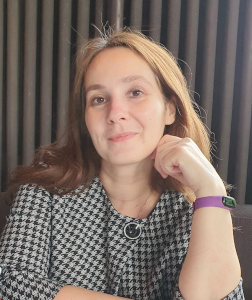Prof. Dr. Iuliia Pavlova Professor (2020), Doctor of Science in Physical Education and Sports (2017), Senior Researcher (2013), Ph.D. in Biology (2008). Member of the Scientific Council for the defense of dissertations (sports, physical education, rehabilitation). Scientific interests: quality of life, physical activity, pro-health attitudes and anxiety, anxiety levels in a threat of experiencing military conflict, impact of Covid-19 on mental health and wellbeing, physical literacy, physical education programs, croc-culture adaptation and validation of measure
Physical Education and Sport
Lviv State University of Physical Culture, Ukraine
Presenting about:
Hidden Patterns in Young Male Population Based on Clustering Analysis in Quality Life Research
Abstract: We aimed to identify hidden patterns of mental conditions and create male profiles to illustrate the different subgroups as well as determinants of anxiety levels among them in accordance with proximity to a possibility of direct exposure to military action. A sample of Ukrainian males, in duty as conscripts to military service participated in a survey. We used the 36-Item Short Form Health Survey, and State-Trait Anxiety Inventory. To discover the number of clusters, the k-means algorithm was used. For validation of the model and further prediction, the random forest machine-learning algorithm was used. By performing k-means cluster analyses, 3 clusters (subgroups) were identified, with cluster sizes ranging from 45 to 120 participants. High values of psychological indices dominated in Subgroup 2, while lowest values dominated in Subgroup 3. Subgroup 1 showed a more even distribution among the indices. Obtained clusters were composed of people from different types of military-related studies. Therefore, there is no clear relevance between different types of military-related studies or even experiencing military actions and anxiety levels.

